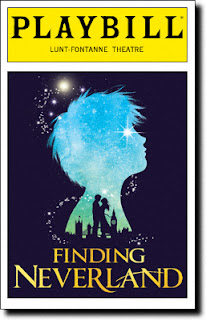Finding Neverland: the Musical
by Paula Gail Benson
This
summer, while I was in Boston for a business meeting, I had the wonderful opportunity
to attend the opening night performance for the national tour of Finding Neverland at the Boston Opera House. Based on a successful
book and movie, this musical tells the story of how author J.M. Barrie
developed the story of Peter Pan after meeting the sons of Sylvia Llewelyn
Davies. Although the fictionalized story does not strictly follow the facts
found on Wikipedia or in Andrew Birkin’s J.M.
Barrie and the Lost Boys: the Real Story Behind Peter Pan or Piers Dudgeon’s
Neverland: J.M. Barrie, the DuMauriers,
and the Dark Side of Peter Pan (which has been reviewed as being a little
too dark and not as factually reliable), the exploration of how an author found
his character (and vice versa) is a fascinating view of the creative process.
summer, while I was in Boston for a business meeting, I had the wonderful opportunity
to attend the opening night performance for the national tour of Finding Neverland at the Boston Opera House. Based on a successful
book and movie, this musical tells the story of how author J.M. Barrie
developed the story of Peter Pan after meeting the sons of Sylvia Llewelyn
Davies. Although the fictionalized story does not strictly follow the facts
found on Wikipedia or in Andrew Birkin’s J.M.
Barrie and the Lost Boys: the Real Story Behind Peter Pan or Piers Dudgeon’s
Neverland: J.M. Barrie, the DuMauriers,
and the Dark Side of Peter Pan (which has been reviewed as being a little
too dark and not as factually reliable), the exploration of how an author found
his character (and vice versa) is a fascinating view of the creative process.
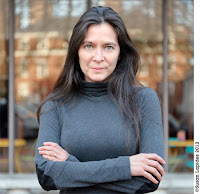 |
| Diane Paulus |
Seeing
this particular production had many advantages. The show already played
Broadway and some of the company had been affiliated with that production. In
particular, Diane Paulus, the Artistic Director of the American Repertory
Theatre (ART) at Harvard University, had directed the musical from the time it was
being developed at ART through its Broadway run. She also directed this
national tour company, and had worked with the creators to incorporate
suggestions for improving the plotline and making the story more immediate for
the audience. The result was a really captivating performance that allowed the
audience’s recollections of the boy who wouldn’t grow up to add another
dimension to the story.
this particular production had many advantages. The show already played
Broadway and some of the company had been affiliated with that production. In
particular, Diane Paulus, the Artistic Director of the American Repertory
Theatre (ART) at Harvard University, had directed the musical from the time it was
being developed at ART through its Broadway run. She also directed this
national tour company, and had worked with the creators to incorporate
suggestions for improving the plotline and making the story more immediate for
the audience. The result was a really captivating performance that allowed the
audience’s recollections of the boy who wouldn’t grow up to add another
dimension to the story.
 |
| Billy Harrigan Tighe |
As
the musical begins, stoic Scotsman J.M. Barrie, a successful London playwright,
is concerned that his plays are all the same and wondering what his next work
should be. His American producer, Charles Frohman, urges him not to worry and finish
the next show. His wife Mary, a former actress now enjoying life in society due
to her relationship with Barrie, also encourages him to continue with the status
quo. But, Barrie meets four boys and their widowed mother, Sylvia Llewelyn
Davies, in the park. After playing with the boys and relearning the joys of
indulging his imagination, he faces triple crises of his wife leaving him for a
nobleman, his producer demanding a new play, and Davies’ mother insisting that
he cut off his relationship with her family.
the musical begins, stoic Scotsman J.M. Barrie, a successful London playwright,
is concerned that his plays are all the same and wondering what his next work
should be. His American producer, Charles Frohman, urges him not to worry and finish
the next show. His wife Mary, a former actress now enjoying life in society due
to her relationship with Barrie, also encourages him to continue with the status
quo. But, Barrie meets four boys and their widowed mother, Sylvia Llewelyn
Davies, in the park. After playing with the boys and relearning the joys of
indulging his imagination, he faces triple crises of his wife leaving him for a
nobleman, his producer demanding a new play, and Davies’ mother insisting that
he cut off his relationship with her family.
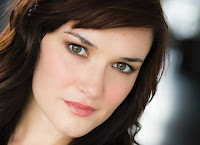 |
| Christine Dwyer |
From
the inner turmoil Barrie experiences, a villain emerges. His first name is
James (after Barrie’s own first name and because, as the character informs
Barrie, he is his alter ego) and his second name is Hook, for the appendage that
takes place of a lost arm as well as the concept necessary to develop a story.
As the first act concludes, Barrie’s imagination has taken the games from the
park, added a dark presence consumed by the press of a ticking clock inside a
crocodile that swallowed the missing arm, and created a pirate adventure that
will become the story of Peter Pan. In the finale, Barrie becomes “Stronger” as
his mind builds the images of the pirate ship (that the audience sees grow from
a park bench) and has Barrie standing on the edge of the plank as the curtain
falls.
the inner turmoil Barrie experiences, a villain emerges. His first name is
James (after Barrie’s own first name and because, as the character informs
Barrie, he is his alter ego) and his second name is Hook, for the appendage that
takes place of a lost arm as well as the concept necessary to develop a story.
As the first act concludes, Barrie’s imagination has taken the games from the
park, added a dark presence consumed by the press of a ticking clock inside a
crocodile that swallowed the missing arm, and created a pirate adventure that
will become the story of Peter Pan. In the finale, Barrie becomes “Stronger” as
his mind builds the images of the pirate ship (that the audience sees grow from
a park bench) and has Barrie standing on the edge of the plank as the curtain
falls.
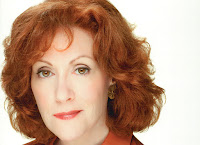 |
| Karen Murphy |
In
the second act, Barrie convinces his dubious producer and cast to put on his
new work. Gradually, they warm to the project as Barrie discovers that Sylvia
is ill. On opening night, Peter Davies is chosen to accompany Barrie to the
theatre, but then the whole company returns to the nursery to give a private
performance for the Davies family. In the end, Sylvia dies and Barrie with her
mother collaborate to raise the boys.
the second act, Barrie convinces his dubious producer and cast to put on his
new work. Gradually, they warm to the project as Barrie discovers that Sylvia
is ill. On opening night, Peter Davies is chosen to accompany Barrie to the
theatre, but then the whole company returns to the nursery to give a private
performance for the Davies family. In the end, Sylvia dies and Barrie with her
mother collaborate to raise the boys.
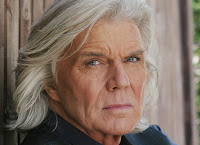 |
| John Davidson |
Following
the Boston performance, our audience enjoyed an onstage interview with the main
actors and director Diane Paulus. Billy Harrigan Tighe, who had worked with
Paulus in Pippin on Broadway played
J.M. Barrie. Christine Dwyer, who had grown up near Boston, took on the role of
Sylvia and was delighted to have so many people she knew coming to see the
production. Veteran actress Karen Murphy played Mrs. DuMaurier, the strict
matriarch who warms to Barrie’s charm, and well-known actor, singer, and TV
personality John Davidson was featured as producer Frohman and alter ego Hook.
In characterizing his work with the production, Davidson spoke eloquently about
how each performance became a contract between the audience members and cast
where all brought their impressions of Peter Pan into the mix.
the Boston performance, our audience enjoyed an onstage interview with the main
actors and director Diane Paulus. Billy Harrigan Tighe, who had worked with
Paulus in Pippin on Broadway played
J.M. Barrie. Christine Dwyer, who had grown up near Boston, took on the role of
Sylvia and was delighted to have so many people she knew coming to see the
production. Veteran actress Karen Murphy played Mrs. DuMaurier, the strict
matriarch who warms to Barrie’s charm, and well-known actor, singer, and TV
personality John Davidson was featured as producer Frohman and alter ego Hook.
In characterizing his work with the production, Davidson spoke eloquently about
how each performance became a contract between the audience members and cast
where all brought their impressions of Peter Pan into the mix.
The musical speaks to
writers seeking to create as well as readers who remember a unique literary creation.
Here’s the website where you can see if it is coming to a theatre near you: http://findingneverlandthemusical.com/tour/.
If it is, please go see it. You will thoroughly enjoy it.

